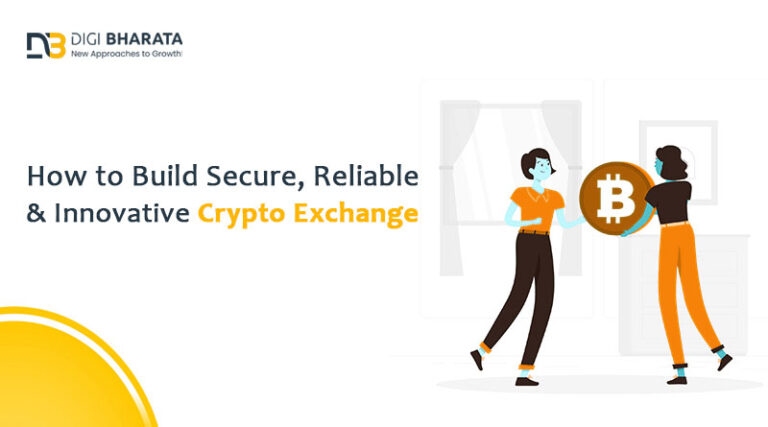In the era of digitalization, online casinos have surged in popularity, providing easy access to a world of gaming, wagering, and potential monetary rewards. While the siren call of online casinos may be alluring, it is essential to understand the various facets of its impact, both economical and psychological.
This article aims to shed light on these two interconnected aspects, enabling individuals to make informed decisions.
Table of Contents
The Economic Terrain
Navigating the economic aspects of online casinos is akin to walking a tightrope between windfall gains and financial disaster. While the allure of instant riches is tempting, the potential for significant loss remains an ever-present reality.
Opportunities for Windfall Gains
The prospect of financial gains is one of the most compelling attractions of online casinos. With a plethora of games like slots, poker, blackjack, and roulette, players have the opportunity to multiply their investment manifold. Some individuals even consider it as a side hustle, generating supplemental income to support their primary revenue stream.
The Landscape of Choices: Navigating Various Platforms
Online casinos come in all shapes and sizes, each offering a plethora of games designed to cater to various tastes. From traditional poker and blackjack games to modern interpretations of these classics, the choices are almost endless. Among these, FanDuel slots stand out as a popular option for many. Known for its user-friendly interface and a variety of themes, this platform offers an enticing experience for those looking to try their luck.
However, playing casino games comes with its own set of economic and psychological implications. Before diving in, make sure you have set a predefined budget and time limit to safeguard against potential risks.
It’s easy to get lost in the engaging graphics and dynamic gameplay, but remember, the stakes go beyond the screen and can impact your financial and emotional well-being.
Financial Pitfalls
However, what is less discussed is the economic downside. As enticing as the idea of easy money may be, there is always the risk of significant financial loss. Many online platforms are designed to favor the house, and even when the odds are fair, luck is an unpredictable factor that can turn the tables without warning. Unlike traditional investments that offer gradual returns, the volatility in online casinos is immense, which can lead to devastating financial outcomes.
Moreover, frequent involvement in online gaming can induce a ‘sunk cost’ fallacy, where individuals continue to pour money into the platform, erroneously believing that they are bound to win back their losses eventually. This cycle can become a financial black hole, consuming savings and even leading to debts.
Regulatory Concerns
Online casinos operate in a complex regulatory environment, which varies from jurisdiction to jurisdiction. Some regions, such as the European Union, have stringent rules to safeguard consumer interests. However, not all online platforms abide by such regulations.
The absence of oversight can result in fraud, where these casinos can abscond with your money, leaving you financially strained and legally helpless.
The Psychological Landscape
The emotional rollercoaster that comes with online gaming is often underestimated. While the highs of winning can be euphoric, the lows can take a toll on your mental well-being, often leading to stress and anxiety.
Euphoria and Escapism
Online casinos are adept at tapping into human psychology. The bright colors, pleasing sounds, and the feeling of winning, even if small, contribute to a sense of euphoria. For some, these platforms serve as a temporary escape from the mundanities or stresses of life, providing a virtual world where they can experience a taste of victory and exhilaration.
The Hidden Tax: Mental Health
The psychological cost can be as steep as the financial one. The unpredictability inherent to these platforms can lead to heightened anxiety, as players await the outcome of their wager with bated breath. Additionally, the cyclical nature of wins and losses can make it challenging to disengage, leading to compulsive behavior patterns that closely resemble addiction.
Many individuals who frequent online casinos report increased levels of stress, anxiety, and even depression when engaged in long-term gaming. The emotional toll can lead to various other issues like poor work performance, strained relationships, and a deteriorating quality of life.
The Illusion of Control
One particularly fascinating psychological implication is the illusion of control that online casinos foster. Many games offer choices—like selecting numbers in roulette or cards in poker—that give the impression that the player has a degree of control over the outcome.
This illusion can be dangerous as it encourages increased investment, both financial and emotional, while the reality remains that much of the outcome is dictated by chance.
Mitigating Risks
Given these economical and psychological landscapes, how can one engage in online casinos responsibly?
- Set Budgets: Always predetermine the amount you are willing to lose and stick to it. This will act as a financial cushion, limiting the potential for economic damage.
- Time Management: Allocate specific time slots for online gaming and adhere to them. This will prevent it from consuming your daily life.
- Seek Professional Advice: If you find yourself spiraling, whether financially or emotionally, consult professionals. Financial advisors can help you navigate the economic pitfalls, while mental health professionals can provide coping mechanisms for the psychological stressors.
- Know the Law: Familiarize yourself with the regulations governing online casinos in your jurisdiction to ensure that you are not breaking any laws and that the platform you are using is compliant with local regulations.
- Self-Exclusion: Most reputable platforms offer self-exclusion options that can help you take a break if you notice compulsive behavior patterns developing.
The Social Dimensions: Beyond the Individual Impact
While much of the focus on the implications of online casinos centers on individual economic and psychological impacts, it’s critical to extend the lens to include social dimensions.
Online casinos don’t just affect those who participate; they have ripple effects that can impact families, friendships, and even broader societal structures.
Familial Dynamics
For starters, heavy involvement in online gaming can significantly alter family dynamics. Financial instability stemming from losses in online casinos may lead to stress and tension within households. Marriages or partnerships can strain due to disagreements over financial priorities, leading to emotional disengagement.
In severe cases, families may break down entirely, with children becoming unintended casualties of their parents’ online gambling habits.
The Role of Social Networks
Friendships, too, can be strained. Individuals absorbed in online casinos may neglect social commitments, leading to isolation. Social networks often serve as buffers against stress, but when these relationships erode due to neglect, individuals may find themselves facing not only financial losses but also a shrinking social circle.
This can exacerbate the psychological toll, leaving individuals more vulnerable to the negative emotional impacts of online gaming.
Societal Costs
At a macro-level, society bears costs as well. Increased rates of addiction and related psychological issues can burden healthcare systems, while financial instability affects economic productivity. If large numbers of people are sinking money into online casinos rather than investing in more traditional and stable financial instruments, the economic ramifications can be considerable.
These platforms also raise ethical questions about income inequality, as they often attract individuals who are financially vulnerable, hoping for a quick fix to their economic woes.
Conclusion
In conclusion, online casinos present a duality of impact—offering both opportunities and pitfalls, affecting your financial and emotional well-being. While they offer a convenient way to engage in recreational gaming, the stakes go far beyond the chips on the table.
Therefore, understanding and navigating the economic and psychological implications are essential for anyone considering stepping into this virtual world of wagering.
Responsible engagement is key to ensuring that this activity remains a source of entertainment rather than a life-altering quagmire.




















+ There are no comments
Add yours